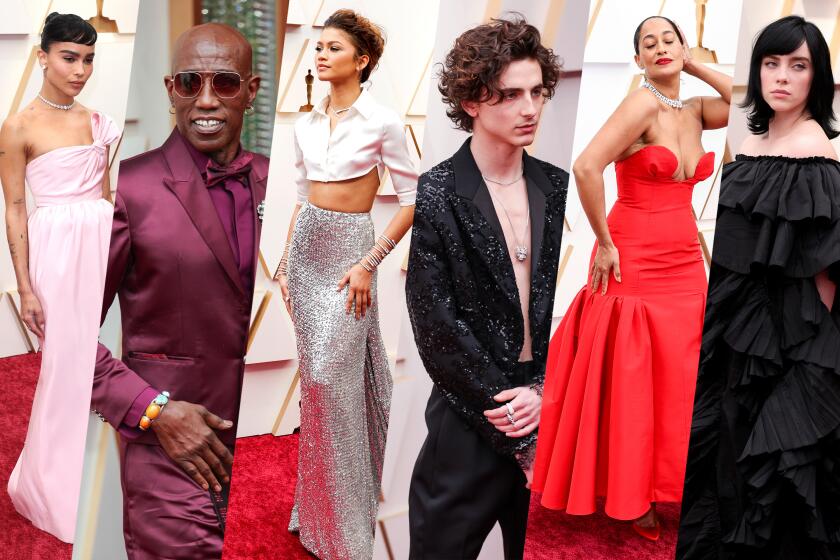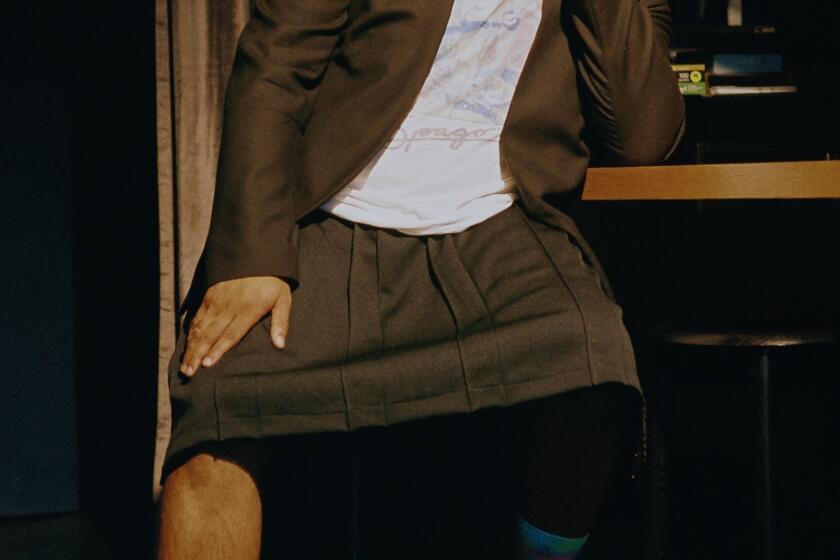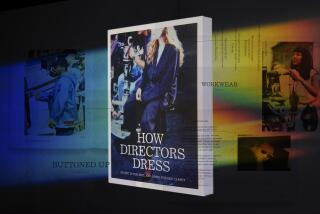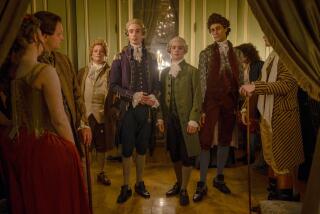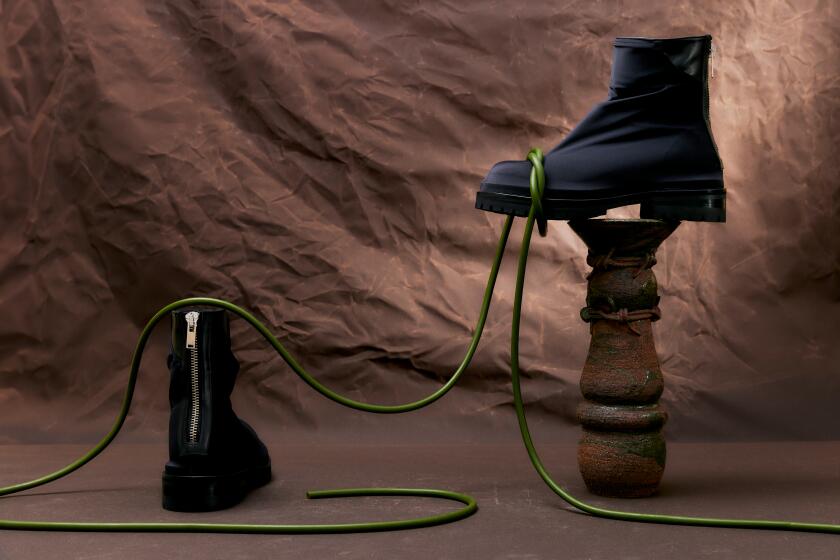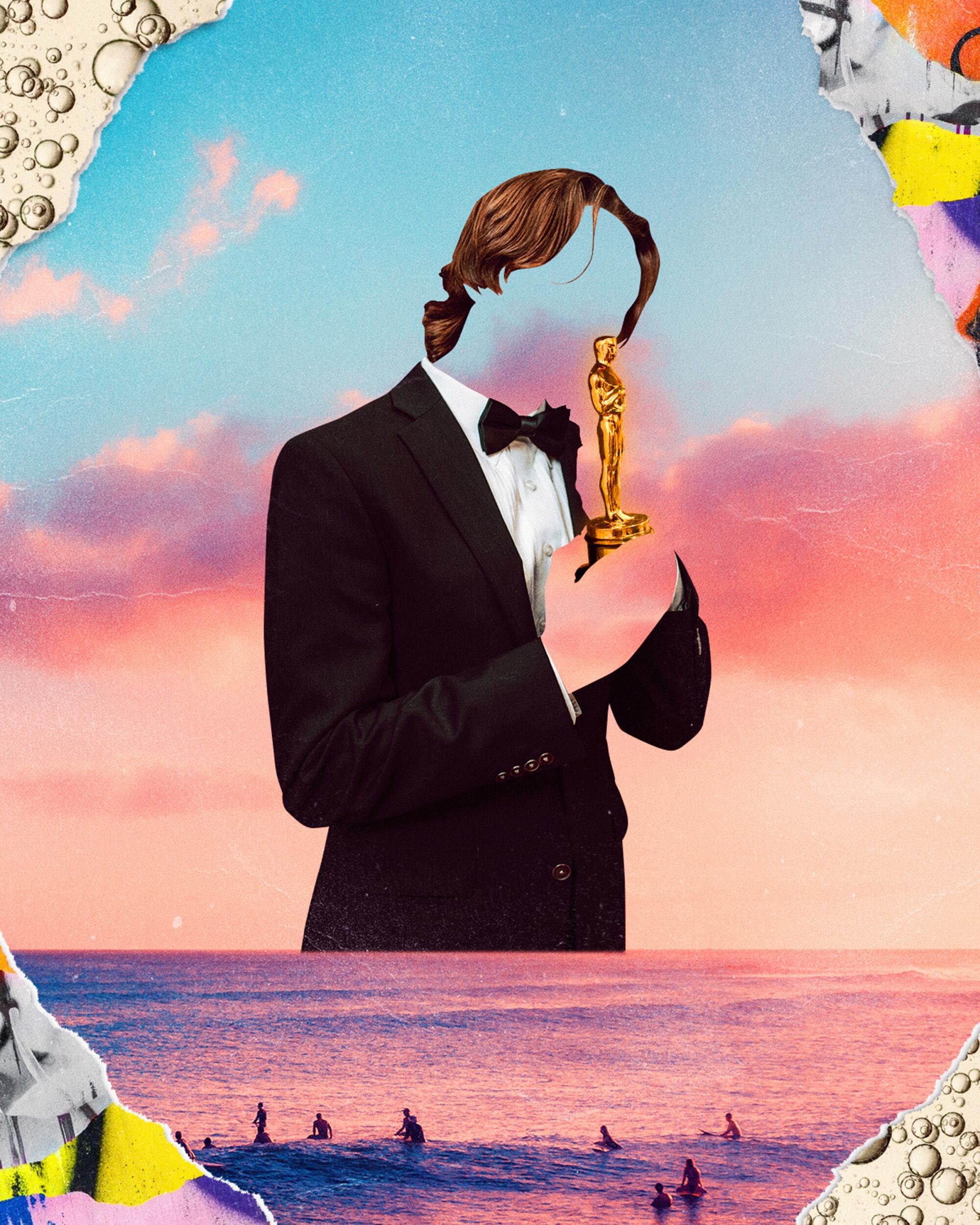
The Oscars is usually a night to celebrate fashion. It’s not often a night for fashion to be forgotten. And yet, here we are. What will be remembered is Will Smith slapping another adult on live TV, not his “Wild Wild West”-adjacent three-piece suit or the fact that he didn’t even bother with a bow tie. This was an Oscars where a moment tailor-made for a professional wrestling match somehow made the clothes feel inessential. Timothée Chalamet didn’t even wear a shirt! But after Chris Rock got clocked in the face even that feels kind of beside the point. There is surely some meaning to be found in the clothes. Bow ties might seem conservative, but maybe we could all stand to be a bit more grounded right now.
Allow me to revise an old joke. L.A. has two seasons: pilot season and bow-tie season. Here, we have to dress up, often against our will, to accept the plaudits and affection that come with undeniable artistic success. Maybe not everyone feels comfortable suiting up and stepping out, but it’s also the accepted pinnacle of professional life in the city. Bow-tie season lasts for a few months and temporarily alters the visual language of fashion in the city. Angelenos are known for our casual, laid-back approach to dressing, but during bow-tie season formal attire — made visible by countless awards events, which consume the social calendars of the entertainment industry — becomes the house style of the city. Suddenly, L.A. is the fashion capital of the world. Men and women are forced to cobble together outfits for lunches, brunches, dinners and cocktail hours. The biggest event of them all is, of course, the Oscars.
The Academy Awards telecast might be single-handedly keeping the bow tie relevant. Even Tucker Carlson stopped wearing them. But at the Oscars, the bow tie is de rigueur. It’s an indelible part of the menswear tableau of Hollywood’s biggest night. You get more attention for not wearing one than wearing one, whereas just about any other social situation where one might wear a bow tie — say a modern-day wedding in L.A., where contradictory words like “beach formal” are sincerely applied dress codes — would mark you as some kind of unrepentant dweeb.
Andrew Garfield, who has torn up awards season in the best way possible, rocked a purple Saint Laurent tux with a wide black bow tie that feels anything but traditional. Kodi Smit-McPhee took my breath away in a baby blue Bottega Veneta, substituting a tie with a tasteful chain around his neck. Last year, Lakeith Stanfield eviscerated everyone else on the red carpet by eschewing the tux altogether and rocking a custom remix of a Saint Laurent women’s jumpsuit. His look was a gender-fluid revelation; a shock of ’70s sleaze in the midst of COVID-era grimness. Lakeith is always going to break down our preconceived notions of how to dress for these things, and that vibe is spreading. Chalamet is literally not wearing a shirt, so clearly all bets are off and anything goes. Which means the bow tie is only going to suffer from dudes trying to push the envelope to catch up. You almost feel like someone is going to show up next year not wearing pants just to get clout. In that world, the bow tie comes off as kind of tedious.
Will Smith wanted to be Eddie Murphy.
But the bow tie does not have to be stuffy. It doesn’t have to feel constricting. Bow ties are notoriously impossible to tie for most men, but a loosely applied one can look rakish and relaxed. A velvet bow tie can come off as sensual and bohemian. Larger bow ties imply a boldness that a lot of men avoid. There are countless examples throughout Oscar history that have shown how the bow tie can set you free.
The greatest to ever do it is our quintessential movie star and as close to a city mascot as we’ve got: Jack Nicholson. Jack’s been going to the Oscars for around six decades and defined the louche cool of the time. His monochrome 1971 Oscars look — a blue velvet blazer and matching bow tie — is timeless. One might say that of course Jack Nicholson looked cool in a bow tie. Some people are naturally cool. But it really isn’t just who’s inside the suit that matters. It’s also how one wears that suit and with what.
Take, for example, Jack’s look at the 1975 Oscars. That year, he was nominated for lead actor for his role as Jake Gittes in “Chinatown.” He lost that night, but as is so often the case, we remember the fit more. His vibe was exciting because he mixed the traditional bow-tie look with a beret, which is not something you see all that often on a red carpet. You can see the throughline from Jack’s beret to Mahershala Ali’s beanie (and no bow tie) in 2019. Sometimes, you have to freak it a little bit. Of course, eventually Jack makes the sunglasses indoors look a permanent fixture of his steez, which is absolutely a freak move par excellence.
To figure out what it means to be beautiful, you must banish the fear from your brain
But what really makes a bow-tie moment for a man at the Oscars is size. As they say, it does matter. One of my all-time favorite Oscars looks is Francis Ford Coppola at that very same 1975 Oscars where Jack wore the beret. His bow tie is huge. It lies floppily on his shirt in a way that almost seems haphazard. The ’70s was a moment to break down, tweak and loosen up. It’s a long way from the polished and shiny 2010s look of someone like John Legend at the 2014 Oscars. And as Oscars looks became more conservative in the post-”Mad Men,” midcentury nostalgia era, the bow ties got smaller. Look at Eddie Redmayne in 2012. The tastefulness of it all is almost too much to bear.
But this is not a tasteful time. This is not a moment to revel in conformity. Even Denzel Washington, a style icon of Oscars decades past, avoided the bow tie. This is a moment for standing out, pushing boundaries and making statements that will last a lifetime. Preferably without hitting someone in the face.
